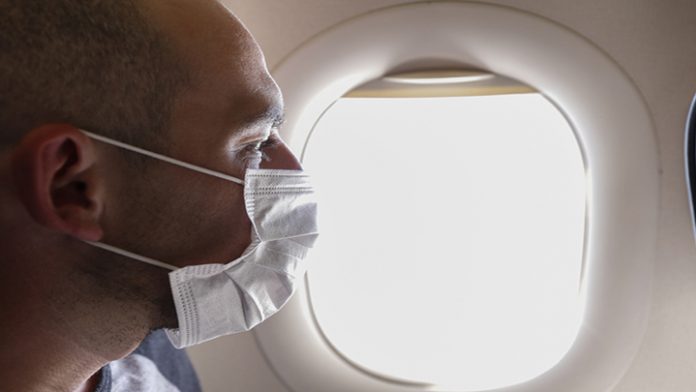The travel and health experience will never be the same after the COVID-19 pandemic, according to a new report by Allianz Partners. The global insurer commissioned futurologist, Ray Hammond, to anticipate and envisage some early patterns of change that are likely to shape this new world.
The new report, ‘Re-Opening the World – Life After COVID-19’, predicts that the pandemic will come to an end sometime in December 2020
Ray Hammond also concludes that road travel will eventually return to normal levels.
The report anticipates that short-haul and domestic air travel will be the first to recover with the cruise industry being the most affected. Travellers will change their behaviour including wearing facemasks throughout their journey. Airlines will cut down on cabin bags to speed up boarding and reduce contamination risk and will reduce food and drink services.
Hotels and resorts will continue to implement enhanced sanitation measures. Restaurants are likely to reopen with shorter hours, for fewer days, with far fewer tables and greatly streamlined menus. Delivery and take-away orders by smartphone apps will hugely increase. All-inclusive hotel packages are likely to be redesigned to remove buffet-style food and drink delivery, to ensure guests receive service at their individual, socially distanced tables. Local excursions are likely to be provided exclusively for individual parties and will inevitably be more expensive.
Despite new difficulties, the report suggests that many people are still going to have the desire to travel. Although there has been a surge in online communication, most people will still want to travel physically, rather than replace the experience with virtual reality simulations.
Nervous travellers will choose to explore their home nations knowing they can return home easily if another viral outbreak occurs.
For healthcare, digital health technology will become the norm, including teleconsultation and encouraging rapid adoption of wearable health technologies.
The public has made it clear to many governments that they care just as much about high quality, widely accessible health and social care as they do about low taxation and constantly improving standards of living. Health is a driver of the economy and what we see now is that without health, there is no economy.
Medical supply chains will be shortened and made more robust and local so that health services do not again have to compete to buy crucial supplies on the international market. Many nations intend to reduce their reliance on foreign-made medical supplies.
The report states that many governments will also seek to bring home the manufacture of active ingredients for pharmaceuticals; a change, which will allow crucial drugs to be produced locally and at short notice. At the same time new vaccine manufacturing facilities are likely to be built closer to where they are needed. The availability of key medical supplies is now seen as a matter of national security.
Almost overnight, the crisis has radically changed the way medicine is practised. The social distancing that was necessary to slow the spread of the pandemic forced many to use internet and digital technology for the first time so a decade’s worth of progress in technological uptake was compressed into just a few weeks.
Even when the world is fully reopened, it is likely that doctors and hospital consultants will continue to provide many routine consultations online (tele-health) – a change that will almost certainly be encouraged by governments. This switch to remote medicine will also prompt a rapid adoption of wearable digital health monitoring to allow doctors to assess patients’ physical wellness remotely. As more young people strap on fitness monitors for enjoyment and to motivate their training sessions, so vulnerable and elderly patients will start to wear body monitors to measure heart rate, blood pressure, blood oxygen level, body temperature, etc.
The switch to virtual consulting means that many elements of healthcare will become distributed into the community and, in part, away from doctors’ offices and hospitals. Remote monitoring and virtual consulting will ease many of today’s burdens on health services whilst improving the delivery of services.
Online healthcare delivery proved particularly useful during the lockdown and many doctors and patients are likely to stay with this form of interaction for routine consultations.
The report concludes that the pandemic crisis has shown the importance of properly funded and well-prepared health services and the vital importance of robust, short medical supply chains and local manufacturing capabilities.








 ©2024 All rights reserved LaingBuisson
©2024 All rights reserved LaingBuisson 


